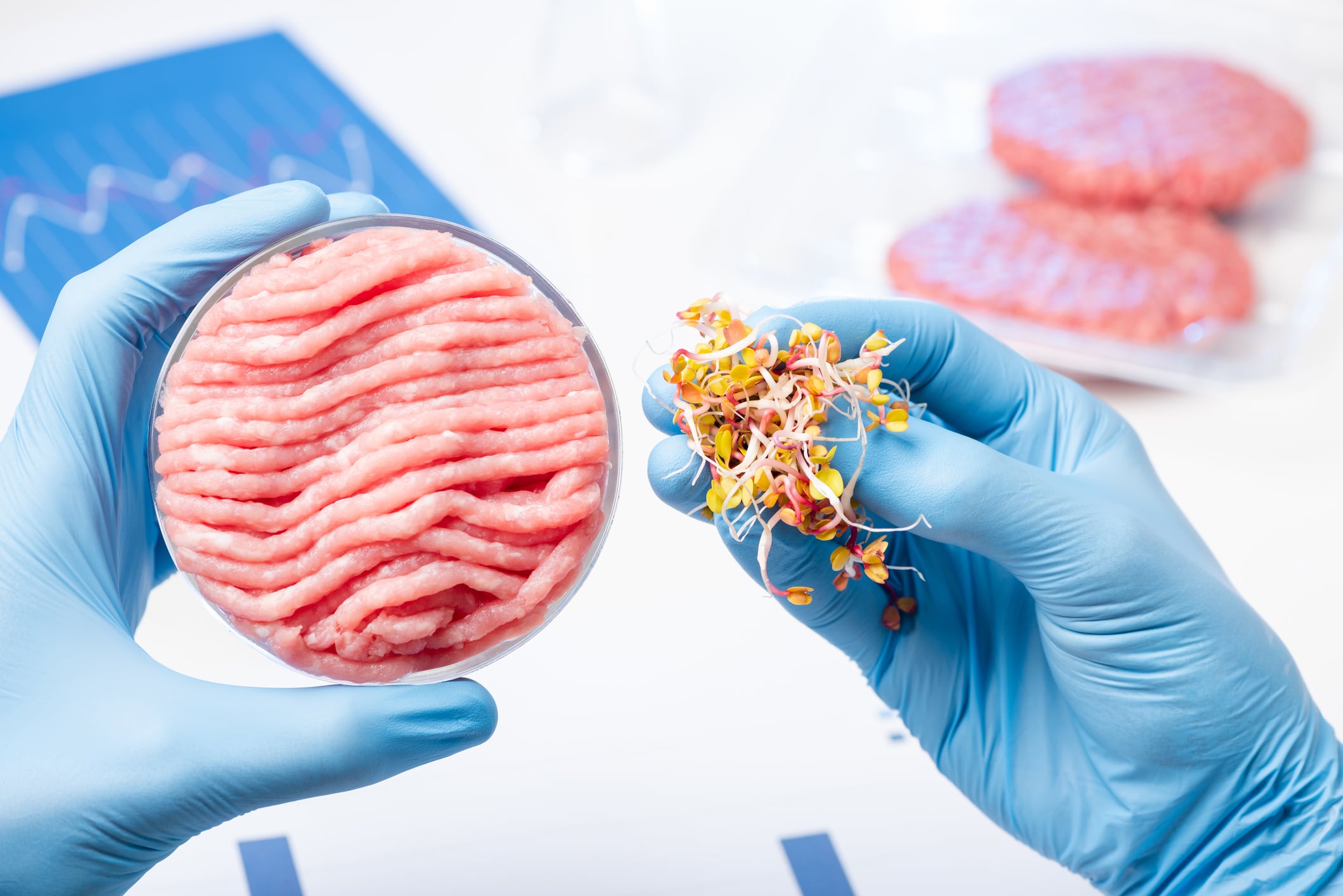Aleph Farms, an Israeli food-tech start-up that grows meat cuts from beef cells using a 3D tissue engineering platform, believes its new goal of going carbon neutral by 2025 will help build a more resilient food system in the wake of the coronavirus crisis.
The company unveiled its first cell-grown minute steak in 2018 and famously completed the first ‘slaughter-free meat’ experiment in space to prove its innovations can withstand extreme environments. Its target is to provide high-quality cell-based steak cuts to restaurants from 2022.
But Aleph has an even bigger goal of becoming one of the three largest meat companies in the world by 2040. It has now committed to eliminate emissions associated with its meat production by 2025 and reach net-zero emissions across its entire supply chain by 2030.
"I truly believe that the food ecosystem is at the point where we really need to rethink the way we manage our natural resources to produce food," Aleph Farms CEO Didier Toubia told FoodNavigator. "Our goal is to be at the centre of a new sustainable global food eco-system.”
He says cultured meat is developing from an intriguing option to one that is a central piece of a new food eco-system that 'we need build following the crisis.'
"If cultivated meat was six months ago an intriguing option and an interesting and innovative prospect for meat production, I think with the series of crises we’ve seen in the last couple of years with African swine fever, related to animal farming, the fires in Australia, which was a huge environmental catastrophe, and with COVID-19 today, I do see cultivated meat becoming a necessity.”
For him, COVID has exposed weaknesses in global food and meat supply chains. But, via cultivated or lab-grown meat, "we can produce cultured meat locally without any friction points with wild animals, and grown within a closed loop meaning no external contaminations."
"Our plan is not only to go zero carbon but also to give back to nature land and water to restore forests and natural eco-systems and biodiversity and preserve the earth as we know it."
Is cultured meat truly environmentally friendly?
It is calculated that food production is responsible for over a quarter of global greenhouse gas emissions. But is cultured meat really the most planetary healthy solution?
Studies have suggested that that lab-grown meat could actually be worse for climate change owing to the CO2 released by the labs. CO2 lasts in the atmosphere more than a century; methane only a dozen years.
Toubia insists that cultured meat takes up a fraction of the resources of traditional meat production. He argued the aforementioned studies are not taking into account the whole production process - in particular the use of energy and water used in feed, transportation and slaughtering in industrial animal farming.
"You have to compare what's comparable, and most of those studies haven't done that." He added these studies have not taken into account the exact and optimised production process of cultured meat.
Cultured meat – the third path to meat production
What's more, he doesn't see cultured meat as something to replace traditional meat, merely as something to assist the agricultural sector in its efforts to become more sustainable. In view of this, the start-up company is currently discussing partnerships with meat companies.
"I truly believe cultivated meat will integrate with the meat industry and the agricultural eco-system and will propose a third path to meat production [in addition to industrial farming and organic meat] to drive the transition towards a carbon neutral meat and food system as a whole.
"We can provide large quantities of meat of controlled and higher quality than industrial farmed meat, without the downside in terms of the environment, animal welfare, or public health."
Aleph also hopes to do this without necessitating higher prices for customers.
The company wants to start building its first pilot plant (or BioFarm) in 2021, to be operational toward the end of 2022, in parallel with production facilities around the world. It plans to sell its first cultivated 'high quality' meat cuts to restaurants and food service outlets by the end of 2022.
“The idea is to be able to offer meat at the same price as conventional meat, first in restaurants, then eventually in retail,” said Toubia, adding that, via partnerships, the company has high ambitions to be one of “the three largest meat companies in the world by 2040".
Transparency and disconnection
Expanding on why he believes the coronavirus crisis provides an opportunity for cultured meat, the CEO believes it can solve the problem of the increased disconnection between consumers and their food.
"Consumers want to know where their food comes from and this is a big advantage of cultivated meat: it's 100% traceable, you know exactly where your food comes from. The production process is 100% transparent and traceable. We can provide more information than anyone else,” he said.
"Consumers want to disconnect more and more the meat from the dead animal. One hand they want to eat meat, on the other hand they switch off their brain when they eat the meat not see a dead animal on their plate. We can solve that paradox."




